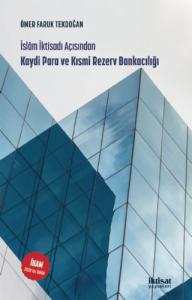-
RIGHTS & PERMISSIONS CATEGORIES
- Education (235)
- Psychology (125)
- See all
- (Will be deleted) Psychological Counseling, Career (9)
- Applied Psychology (22)
- Clinical Psychology (73)
- Developmental Psychology (23)
- Experimental Psychology (12)
- Introduction to Psychology (4)
- Social Psychology (21)
- Economics and Administrative Sciences (190)
- See all
- Aviation Management (12)
- Business (130)
- Econometrics (24)
- Economy (47)
- Finance - Tax (2)
- International Trade and Logistics (20)
- Labor Economics and Industrial Relations (12)
- Management Information Systems (10)
- Maritime Management (6)
- Public Administration and Political Science (77)
- See all
- International Relations (44)
- See all
- African Studies (1)
- Asia-Pacific-Far East Studies (2)
- Crisis and International Conflicts (2)
- International Migration (5)
- International Organizations (1)
- International Security (1)
- Introduction to International Relations (6)
- Middle Eastern Studies (7)
- Regional Studies (10)
- Russian Studies (2)
- Terrorism and Regional Security (3)
- Turkish Foreign Policy (10)
- Turkish World Studies (4)
- Law (11)
- Local Administrations, Urban and Environmental Policies (8)
- Political Science and Management (23)
- Social Sciences and Humanities (224)
- See all
- Anthropology (3)
- Geography (6)
- History (25)
- Liiterature (29)
- Linguistics (6)
- Philosophy (49)
- See all
- Ancient Philosophy (2)
- Contemporary Philosophy (6)
- Educational Philosophy (1)
- History of Philosophy (4)
- History of Science and Philosophy of Science (6)
- Introduction to Philosophy (6)
- Islamic Philosophy and Thought (19)
- Medieval Philosophy (1)
- Moral-Ethical Philosophy (8)
- Society and Political Philosophy (6)
- Sufi Philosophy (2)
- Research Methods (21)
- Sociology (79)
- See all
- Commune Problems (3)
- Communication Sociology (6)
- Criminal Sociology (4)
- Economic Sociology (5)
- Educational Sociology (2)
- Gerontology-Aging (1)
- Immigration Sociology (3)
- Introduction to Sociology (5)
- Political Sociology (9)
- Race and Ethnicity Studies (1)
- Regional Studies and Globalization (2)
- Social Structure and Change (13)
- Sociology of Change, Underdevelopment and Modernization (1)
- Sociology of Culture (2)
- Sociology of Religion (13)
- Sociology of Work (3)
- Urbanization and Environmental Sociology (3)
- Women and Family Sociology (5)
- Work and Organization Sociology (5)
- Theology (74)
- World Languages (7)
- Communication Sciences (51)
- Science and Mathematics (104)
- Architecture and Fine Arts (26)
- Engineering (153)
- See all
- Aerospace Engineering (16)
- Agriculture, Forestry and Aquaculture (13)
- Biomedical Engineering-Bioengineering (3)
- Chemical Engineering (6)
- Civil and Survey Engineering (18)
- Computer and Software Engineering (30)
- Control and Automation Engineering (8)
- Electronics, Electrical and Energy Systems Engineering (20)
- Environmental and Earth Sciences Engineering (5)
- Industrial Engineering (50)
- Manufacturing Engineering (12)
- Map engineering (1)
- Marine and Marine Engineering (10)
- Materials and Metallurgical Engineering (5)
- Mechanical and Automotive Engineering (21)
- Mechatronic Engineering (5)
- Mining, Geology, Geophysics and Petroleum Engineering (5)
- Textile Technologies and Engineering (1)
- The Food Engineering (4)
- Health Sciences (116)
- See all
- Basic Medical Sciences (25)
- Child Development (23)
- Department of Occupational Therapy (4)
- Emergency Aid and Disaster Management (5)
- Gerontology (5)
- Health Care Services (16)
- Healthcare Management (15)
- Internal and Surgical Diseases (2)
- Language and Speech Therapy Department (3)
- Medical Services and Techniques (23)
- Midwifery (12)
- Nursing (14)
- Nutrition and Dietetics (8)
- Occupational Health and Safety (3)
- Pharmacy (4)
- Physical therapy and rehabilitation (2)
- Social Service (24)
- Veterinary Medicine (9)
- Tourism - Travel - Gastronomy (13)
- Personal Development - Hobby (24)
- Hobby (10)
- Children's Books (10)
- Sports Sciences (1)
- Publications in Foreign Languages (49)
- Our Collaborations (54)
DETAILED MONEY AND PARTIAL RESERVE BANKING in terms of Islamic Economics

Author
Publisher
İktisat Yayınları
Barcode
9786257015240
ISBN
978-625-7015-24-0
Pages
280 Page
Dimensions
13,5x21,5
Language
Türkçe
Paper/Color
Kitap Kağıdı / Tek Renk
Number of Prints
1. Baskı
Print Year
2020
Cover/Color
Karton Kapak
The partial reserve system, which we can call the basis of modern finance, has been the subject of discussion from past to present due to its weak structure, the role it played in economic instability and the problems it created. This interest-based system, which ensures that most of the money supply is dematerialized, has led to a macro-ribâ system that envelops economic life. The full reserve system, which was developed as an alternative to this system, could not find its place in practice. From the point of view of Islamic economics, the fact that the current system is riba-oriented and causes an unfair distribution of resources has necessitated the evaluation of the alternatives put forward from this perspective. The fractional reserve system operates based on confidence that commercial banks and central banks will provide sufficient liquidity when needed, and thus in essence it is prone to financial crises.
is weak and fragile. From this perspective in the book, the problems that are claimed to arise in economies with the discovery of fractional reserve banking are examined, the applicability of full reserve banking and how sufficient it is for a solution are examined, and the suitability and drawbacks of both systems in terms of Islamic economics are discussed. In addition, the effect of both banking systems on economic stability was compared using an agent-based simulation model.
is weak and fragile. From this perspective in the book, the problems that are claimed to arise in economies with the discovery of fractional reserve banking are examined, the applicability of full reserve banking and how sufficient it is for a solution are examined, and the suitability and drawbacks of both systems in terms of Islamic economics are discussed. In addition, the effect of both banking systems on economic stability was compared using an agent-based simulation model.